6 Ways to Continue the TESOL 2019 Convention Energy
by Stephanie N. Marcotte
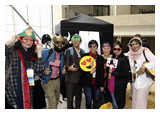 The TESOL 2019 Convention was a huge success! From the roaring exposition room to the small hallway conversations, from the informative workshops to the thoughtful reflections, the 2019 TESOL Convention allowed all of us to come alive, feel welcomed, and leave refreshed.
The TESOL 2019 Convention was a huge success! From the roaring exposition room to the small hallway conversations, from the informative workshops to the thoughtful reflections, the 2019 TESOL Convention allowed all of us to come alive, feel welcomed, and leave refreshed.
As an ambassador for the convention, I was so happy to speak with folks from around the world and from different sections of our field. Over and over, I heard people talking about the energy of the convention.
As we all go home to our different parts of the world and sync back into our old routines, we must not lose our convention energy and motivation. We must use this as a platform to raise up our programs, colleagues, students, and profession.
Here are a few ideas to help continue the energy from convention!
-
Join myTESOL, check it often, and interact! The myTESOL platform is here to help facilitate new conversations and continue old ones. Repeatedly, I heard attendees talking about wanting to connect with other affiliates, schools, and teachers. myTESOL is a great first start!
-
Apply for the TESOL Leadership Development Certificate Program! This is a free online self-paced TESOL certificate program. This is a great way to take what you have learned and the conversations that you have had and start creating a plan forward.
-
Submit to the TESOL Resource Center. This is a wonderful way to share teaching tips and lessons that you have used in the past, presented on during convention, or soon hope to try. The TESOL Resource Center is a great launching pad.
-
Explore the TESOL Calendar of Events. Are you looking for more conferences to attend in your area? Do you want to travel to another area and present? Did you have a great presentation at convention that you want to share with an affiliate? Take a look at the TESOL calendar of events and make sure to check it often.
-
Participate in a TESOL Seminar. TESOL offers frequent TESOL seminars online that are free for TESOL members. If you have a busy schedule or many other commitments, this is a great way to continue sharing, learning, and growing after convention. Take a look at what is ahead and mark your calendar now!
-
Have a conversation. This post is probably the most important. The best way to keep the convention energy glowing strong is to share what you learned at TESOL, start new conversations, and get others involved. Begin a conversation with a fellow teacher, your department, or even your students.
As TESOL professionals, we are all at different places in our TESOL journey. However, the best way to move forward is to lift ourselves up. Make time to reflect on all that you have learned at convention and take these six suggestions as a way to keep the fire burning bright.
See you next year at TESOL 2020 in Denver, Colorado!
Stephanie Marcotte is an AESL professor at Holyoke Community College in Holyoke, Massachusetts, USA. She is a doctoral student at the University of New England, where she studies transformational leadership within higher education. Stephanie is also the past-president for NNETESOL, a TESOL affiliate organization.
TESOL Blogs
Interested in writing a blog for TESOL?
Read the submission guidelines and send us your post!
Check out a few recent TESOL Blog posts:
|
Augmented Reality for Language Learning, by Greg Kessler
 Augmented reality (AR) presents us with so many opportunities for language teaching and learning. If you are not familiar with this concept, perhaps the best example is Pokémon Go! This cultural phenomenon continues to be so compelling that it has inspired news events such as this one, just yesterday: “After causing mayhem, Pokemon Go shut down at Minnesota State Fair.” Augmented reality (AR) presents us with so many opportunities for language teaching and learning. If you are not familiar with this concept, perhaps the best example is Pokémon Go! This cultural phenomenon continues to be so compelling that it has inspired news events such as this one, just yesterday: “After causing mayhem, Pokemon Go shut down at Minnesota State Fair.”
This viral AR game captured the world’s imagination a few years ago, and I believe the engagement that this technology promotes can be harnessed for similar effect in the language classroom. AR allows us to interact with the physical world around us while our understanding is enhanced through the addition of digital content that is layered on that physical world. This additional content can include any information that might be helpful for a particular experience, such as video, directional guidance, historical content, or a virtual personal guide. Read more. |
|
5 Ways to Help ELs Develop Pride in Their Heritage, by Judie Haynes
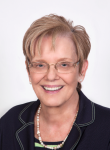 English learners (ELs) offer a rich resource from which mainstream teachers and students can learn about other languages and cultures. If teachers support the diversity in their classrooms, all students will begin to understand and value the many distinct cultures of the world. Teachers should take advantage of this natural resource that is in their classrooms and support ELs from diverse backgrounds to develop pride in their heritage. Following are some classroom practices that you and your colleagues can adopt to help the ELs in your school develop pride. Read more. English learners (ELs) offer a rich resource from which mainstream teachers and students can learn about other languages and cultures. If teachers support the diversity in their classrooms, all students will begin to understand and value the many distinct cultures of the world. Teachers should take advantage of this natural resource that is in their classrooms and support ELs from diverse backgrounds to develop pride in their heritage. Following are some classroom practices that you and your colleagues can adopt to help the ELs in your school develop pride. Read more.
|
|
A Framework for Understanding Games and Learning, by Jeff Kuhn
 Hi all, welcome to another edition of the TESOL Games and Learning blog! This month I wanted to highlight Reinhardt and Sykes’ (2012) framework for incorporating games into classroom practice in response to Mary McDonnell who, on my initial blog post, asked for some games and learning research. Hi all, welcome to another edition of the TESOL Games and Learning blog! This month I wanted to highlight Reinhardt and Sykes’ (2012) framework for incorporating games into classroom practice in response to Mary McDonnell who, on my initial blog post, asked for some games and learning research.
Reinhardt and Sykes (2012) have outlined a four-part framework for games in the language classroom that considers best practices for the use of games for second language (L2) learning. It’s a fantastic entry point for understanding the ways educators can view games and their role in the classroom. Read more. |
TESOL Bookstore

Featured Resources from TESOL Press
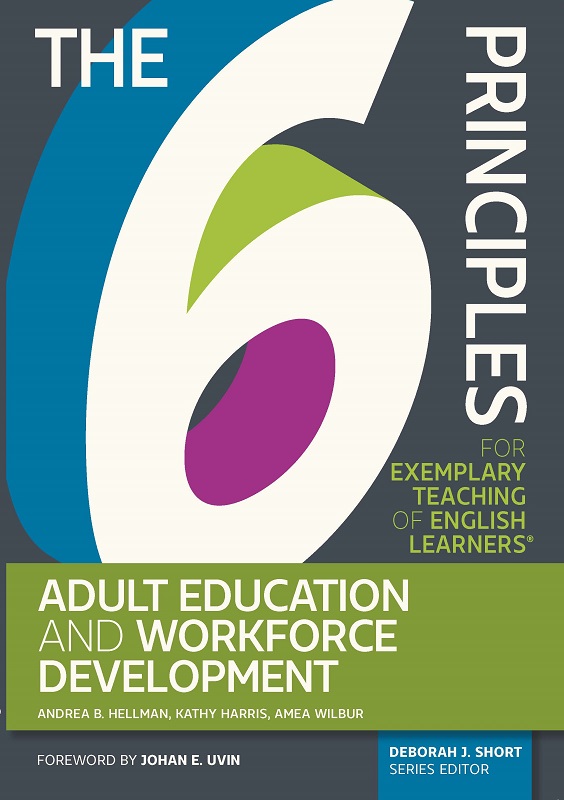 The 6 Principles for Exemplary Teaching of English Learners®: Adult Education and Workforce Development
The 6 Principles for Exemplary Teaching of English Learners®: Adult Education and Workforce Development
Andrea B. Hellman, Kathy Harris, Amea Wilbur, Authors,
and Deborah J. Short, Series Editor
This second book in The 6 Principles series is aimed at teachers of adult English learners who have general educational goals at their current life stage. These students need English for a job or for career training opportunities; they may be immigrants, migrants, guest workers, or refugees. Most likely, they are at the beginning and intermediate stages of building their functional language skills in English. The teaching applications featured apply to teaching adult learners worldwide.
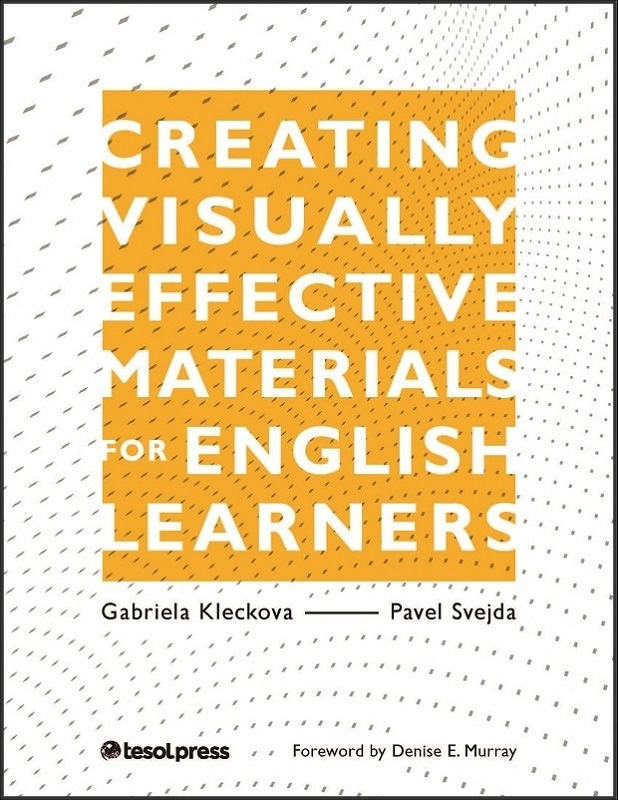 Creating Visually Effective Materials for English Learners
Creating Visually Effective Materials for English Learners
Gabriela Kleckova and Pavel Svejda
This ebook is designed to help meet the needs of TESOL professionals in the areas of visual literacy and communication inside and outside ESOL classrooms. It includes practical ideas for writers and teachers and shows how TESOL practitioners can make their own materials more accessible and appealing to their learners and other audiences.
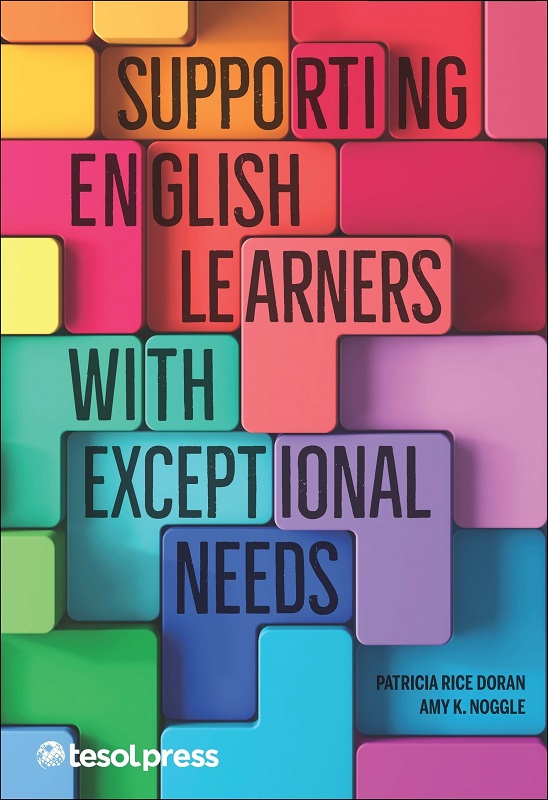 Supporting English Learners with Exceptional Needs
Supporting English Learners with Exceptional Needs
Patricia Rice Doran and Amy K. Noggle With Heather Wayson Wilson, June Lucas Zillich, and Gregory Knollman
Educators working with English learners face challenges beyond teaching academic content in languages new to the students. This book provides a discussion of strengths-based and deficit-based mindsets, collaborative problem-solving, and universal supports for curriculum access.